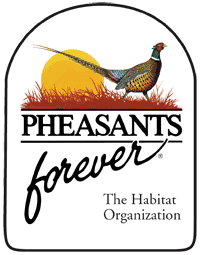Pikes Peak Pheasants Forever to Hold Annual Banquet
Pheasants Forever 01.28.14

The Pikes Peak Chapter 247 of Pheasants Forever is inviting you to their annual banquet for a night of food, fun and friends.
The Pheasants Forever banquet is Feb. 8, at the Colorado Springs Event Center, 3960 Palmer Park Blvd., Colorado Springs. Games, silent auction, live auction and bucket auction begin at 4 p.m. Dinner starts at 6 p.m. Banquet admission includes a great dinner, a Pheasants Forever membership and chances to win great prizes.
Pheasants Forever works to develop pheasant and quail habitat to provide a more diverse ecosystem and healthier environment for all to enjoy. Chapter 247 is located in Colorado Springs and serves around 300 members from El Paso and surrounding counties.
Like Colorado Parks and Wildlife, Pheasants Forever is committed to engaging youth in the outdoors and creating our next generation of conservationists. Pikes Peak Pheasants Forever holds several youth and beginner events each year including mentored hunting events, kids’ fishing programs and instructional classes.
Local donations remain in the chapter and go to support local habitat, youth, T.U.N.E. Camp, (The Ultimate Nature Experience) and biologist support.
For more information or to pre-register visit www.pikespeakpheasantsforever.org or call Dale Merritt, banquet chair, at 303-929-9971.

